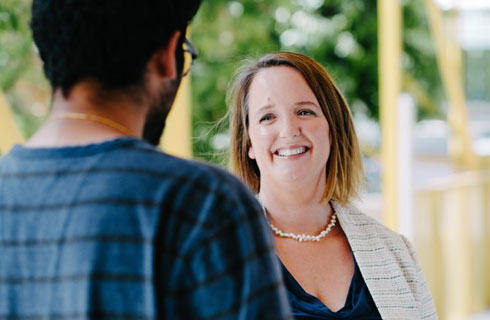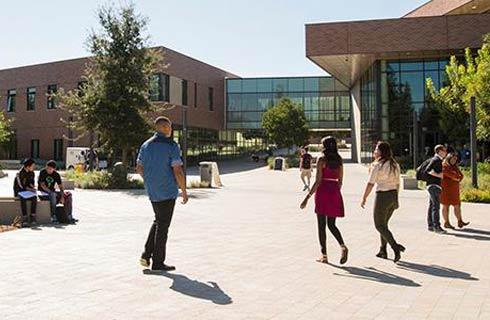流行病学理学博士-癌症流行病学
Doctor of Science in Epidemiology - Cancer Epidemiology

学历文凭
Ph.D.

专业院系
Department of Epidemiology

开学时间

课程时长

课程学费

国际学生入学条件
IDP—雅思考试联合主办方

雅思考试总分
7.0
- 雅思总分:7
- 托福网考总分:100
- 托福笔试总分:600
- 其他语言考试:PTE Academic - 68
CRICOS代码:
申请截止日期: 请与IDP联系 以获取详细信息。
课程简介
The doctoral program in Epidemiology is anchored in public health and population research and analysis. Students approach research using epidemiologic methods to understand complex human health problems. The PhD requires two years of coursework followed by two (or more) years of research. Students are required to complete a teaching training curriculum and serve as a teaching assistant for methods and topical courses. Additionally, students must complete a written comprehensive exam, a practice oral exam, a preliminary exam, multiple oral and poster presentations, and a final dissertation including presentation and defense.<br>This is an exciting time in the field of Cancer Epidemiology as technological advancements have led to more precise measurements of exposures, the creation of large more complex databases, and the development of new analytic methods. The Cancer Epidemiology faculty at Johns Hopkins conduct a wide range of public health research that covers the entire cancer continuum including cancer etiology, early detection, cancer prevention, control, surveillance, survivorship and disparities of a number of cancers. There is a strong emphasis on translational epidemiology and team science, both within Johns Hopkins (including collaboration with investigators at the Sidney Kimmel Comprehensive Cancer Center) and other institutes as well as nationally and internationally. Many of the faculty are also involved in large international consortia efforts and have access to a variety of data.
相关申请
 预科
预科 奖学金
奖学金 实习机会
实习机会 在校学习
在校学习 跨境学习
跨境学习 校园授课-线上开始
校园授课-线上开始 在线/远程学习
在线/远程学习
开学时间&学费
学费信息仅供参考,请与IDP联系以获取详细信息
| 开学时间 | 时长 | 学费 | 地点 |
|---|
学校排名

世界排名12
数据源:
泰晤士高等教育世界大学排名
关于约翰霍普金斯大学

关于约翰霍普金斯,学生和家长甚至专业的教育人士间都存在很多误解,比如常常把它认作是常青藤的一员,以及“只有医科拿得出手”等等。其实JHU同样可以为那些非医学类志愿的学生提供很多的机会,它的人文社科和自然科学类的专业同样非常知名。JHU的在校生普遍认为他们正处于学术游戏的顶峰位置,有时候不得不熬夜读书努力钻研以保持这个地位。JHU连续30年成为全美年科研经费最高的大学,根据美国国家科学基金会统计,约翰霍普金斯大学曾一年内从国家科学基金会、国家卫生研究院、国家航空航天局以及美国国防部获得超过15亿美元的科研经费,而这还是发生在07年。整个巴尔迪莫市遍布了JHU的分校,研究中心和合作单位,彼此间还提供免费巴士往返。近70%的霍普金斯学生至少有过一项研究经验。学校通过60项津贴资助每项本科生研究2500美元。霍普金斯是美国学术方面最为严格的学校之一,JHU的课程充满挑战性,但不残酷。大一新生都被安排了学前导师,艺术和理科学生被鼓励到大二之后再决定专业。大一新生可以在他们的第一个学期参与一个基础引导课程,这可以帮助他们轻松的进入大学严格的学术气氛,当度过了这段“蜜月期”之后,学生们又必须认真努力起来,进入艰苦的工作学习之中。要知道,校园里80%的人曾经是他们高中班级的前十名。
本校相关课程

计算机音乐学士学位
学历文凭
Bachelor Degree
开学日期
课程费用总额


写作研讨会文学学士
学历文凭
Bachelor Degree
开学日期
课程费用总额


小说与诗歌艺术硕士
学历文凭
Masters Degree
开学日期
课程费用总额


卫生科学信息学理学硕士-研究
学历文凭
Masters Degree
开学日期
课程费用总额


应用数学和统计学文学硕士/社会学哲学博士
学历文凭
Combined Graduate / Doctoral Degree
开学日期
课程费用总额


社会学哲学博士
学历文凭
Ph.D.
开学日期
课程费用总额

其他相关课程

公共卫生学士
 布鲁克大学
布鲁克大学学历文凭
Bachelor Degree
开学日期
课程费用总额


职业与公共卫生应用科学学士学位-公共卫生与安全
 多伦多都会大学
多伦多都会大学学历文凭
Bachelor Degree
开学日期
课程费用总额


人口健康风险评估与管理研究生文凭
 渥太华大学
渥太华大学泰晤士高等教育世界大学排名:188
学历文凭
Graduate Diploma
开学日期
课程费用总额


公共卫生理学硕士(非论文)
 麦吉尔大学继续教育学院
麦吉尔大学继续教育学院学历文凭
Masters Degree
开学日期
课程费用总额


公共卫生硕士
 西蒙菲莎大学
西蒙菲莎大学学历文凭
Masters Degree
开学日期
课程费用总额


社区卫生科学哲学博士
 卡尔加里大学
卡尔加里大学学历文凭
Ph.D.
开学日期
课程费用总额










 美国
美国